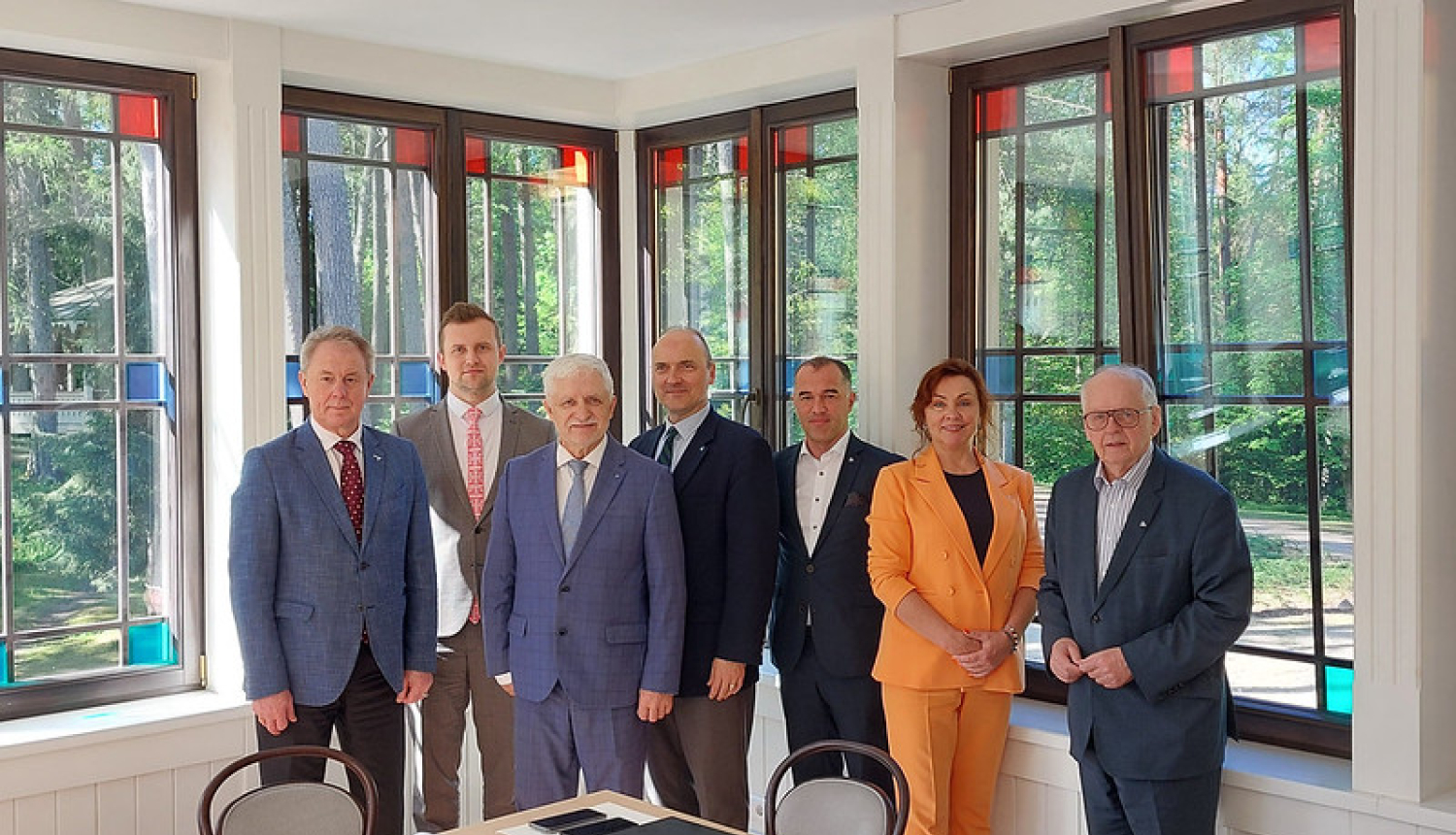On 30 May 2025, the Parliamentary Secretary of the Ministry of Foreign Affairs, Artjoms Uršuļskis, met with the Presidium of the Baltic Assembly in Cēsis to discuss the achievements and future plans of the Latvian Presidency of the Baltic Council of Ministers and the Baltic Assembly in 2025. “This year, strengthening the security and resilience of the region, support to Ukraine, as well as improvement of regional connectivity and energy security, and the attraction of investment remain the priority areas of cooperation among the Baltic states,” Artjoms Uršuļskis told the members of the Presidium.
“The Baltic states are actively building their security and defence capabilities and enhancing tripartite cooperation in civil defence. Promotion of the resilience and economic growth of the EU’s eastern border and the implementation of regional transport, energy and digital infrastructure projects are of vital importance,” the Parliamentary Secretary underlined.
Latvia has developed a plan for economic growth and strengthening security in the eastern border regions of Latvia for 2025-2027, with EUR 644.6 million allocated for the purpose. The amount comprises EUR 269.6 million in financing from the Latvian state budget, and EUR 375.0 million from the European Union (EU) funds and other foreign sources.
Parliamentary Secretary Uršuļskis highlighted in particular the synchronisation of the Baltic states electricity networks with the European continental grid, which promotes better connectivity of the EU system and market integration: “This year marks the end of an important phase in strengthening the energy independence of the Baltic states, as the synchronization of the Baltic states’ electricity grids with the continental European system was successfully completed in February.”
“Support provided by the governments, Parliaments and society of the Baltic states to Ukraine is unwavering. It is important that we continue our successful cooperation in international organisations, thereby promoting Russia's isolation,” Artjoms Uršuļskis emphasised.
The Parliamentary Secretary thanked Lithuania and Estonia for their support to Latvia in the fight against hybrid warfare and the increasing pressure of illegal migration. Artjoms Uršuļskis spoke highly of cooperation between the Baltic Assembly and the Baltic Council of Ministers, as well as thanking the Baltic Assembly for its work in promoting the development of our countries and strengthening their ties.
The Baltic Council of Ministers (BCM) is an intergovernmental co-operation institution established by Latvia, Lithuania and Estonia on 13 June 1994. The BCM is tasked with providing the continuity of co-operation at the level of national executive authorities. In Latvia, the Ministry of Foreign Affairs acts as the BMP Secretariat and ensures its functioning.
The Baltic Assembly (BA) is an inter-parliamentary institution of Latvia, Estonia and Lithuania established on 8 November 1991. Its Presidium consists of the Head and the Deputy Head of each national delegation appointed by Parliaments of member states.
In 2025, Latvia is holding Presidency of the Baltic Council of Ministers and the Baltic Assembly.




